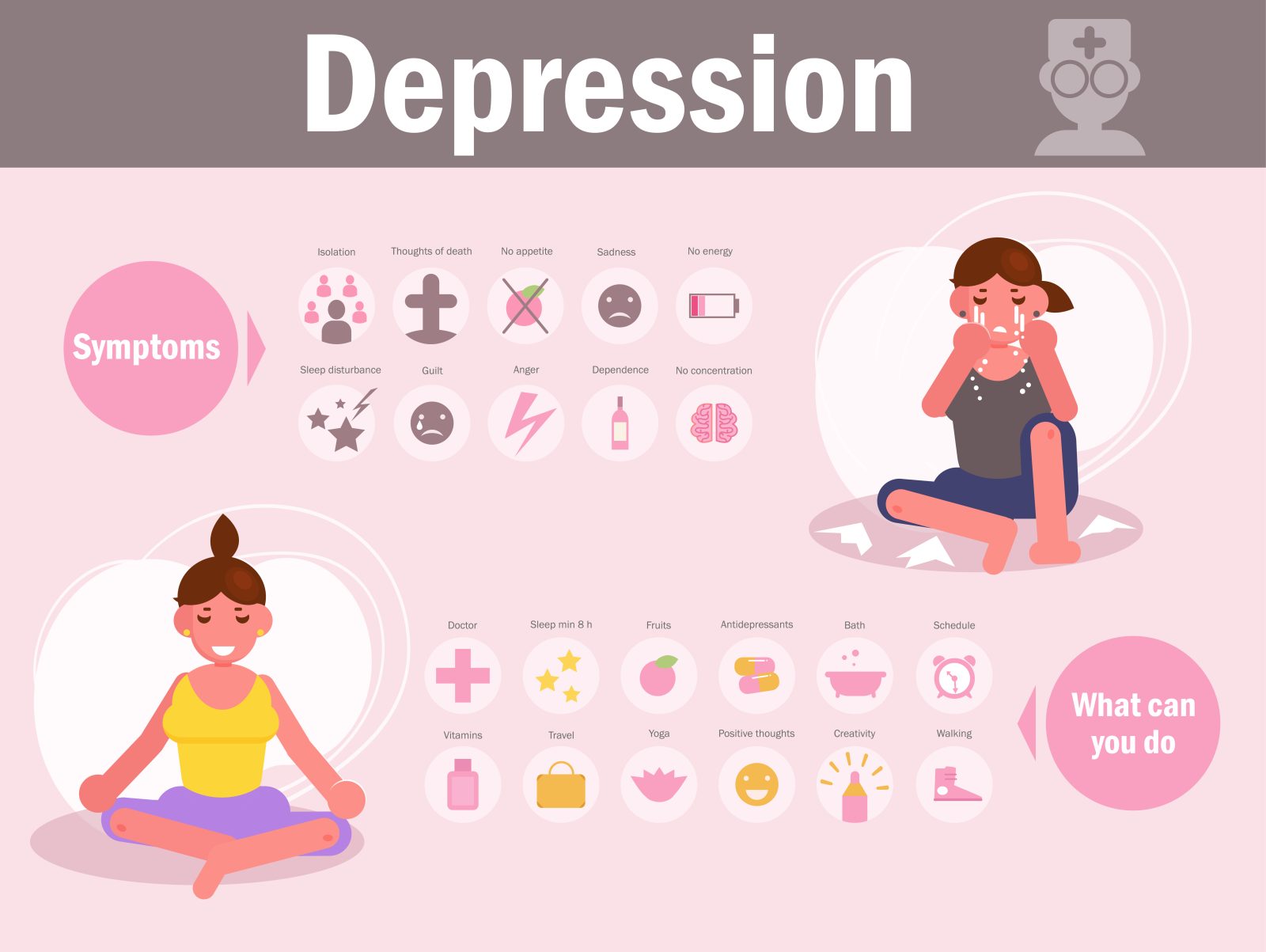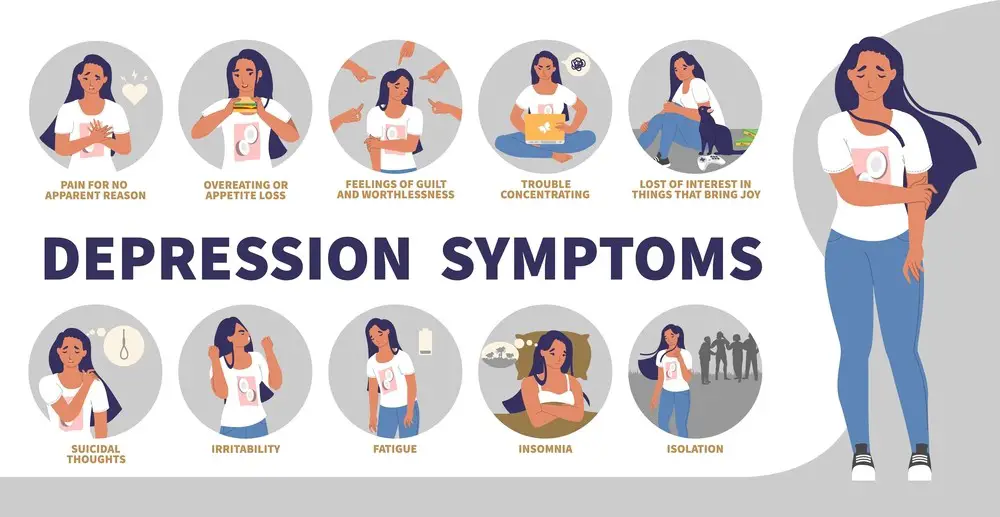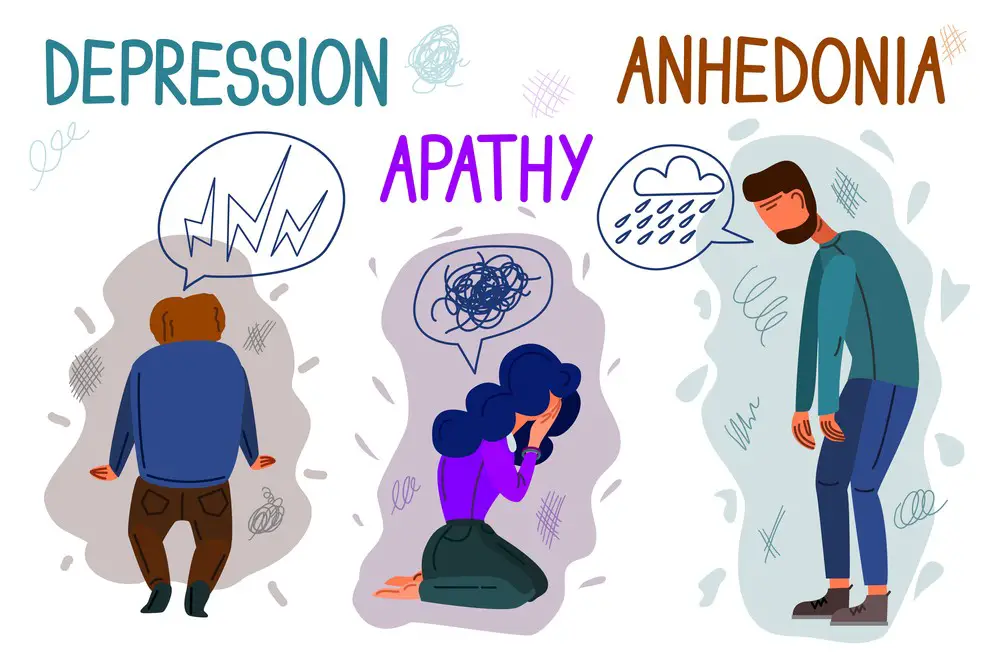As a BetterHelp affiliate, we receive compensation from BetterHelp if you purchase products or services through the links provided
When faced with a depressed slump, it is easy to feel trapped and overwhelmed. The recovery process might be challenging, but the way out is doable. This article provides helpful tips and strategies for overcoming a depressive episode and getting back on track with a healthy mindset.
Depression is a complex mental health condition that affects individuals differently. It has varied causes and triggers and can significantly affect daily life. It’s important to recognize the impact depression can have and acknowledge the need for assistance in overcoming it. The following content will cover self-care strategies, emphasize the importance of support and connection, and guide moving forward after a depressed slump.
Key Takeaways
- Acknowledge depression’s impact and the importance of seeking help
- Focus on self-care strategies and establishing support connections
- Learn to move forward with a healthier mindset
 Understanding Depression
Understanding Depression
Identifying Symptoms
Depression has a variety of symptoms that can manifest in several ways. Some common symptoms include persistent sadness, loss of interest in activities, sleeping issues, and lack of concentration. These symptoms can vary in intensity and duration for each individual.
Differentiating Depression Slump and Common Sadness
It’s essential to recognize the difference between a depression slump and common sadness. While both can cause feelings of unhappiness, a depression slump is characterized by a prolonged period of low mood and an inability to carry out daily activities. Common sadness is often short-lived and triggered by a specific event.
Grasping the Complexity of Depression
Depression is a complex mental health condition that is influenced by a combination of biological, psychological, and social factors. It can affect people of all ages, genders, and backgrounds. No single cause can fully explain depression, making it difficult to diagnose and treat.
Depression and Fatigue
One of the common symptoms of depression is fatigue. This can manifest as constant tiredness, even after a full night’s sleep. It may exacerbate other depression symptoms and contribute to a lack of motivation and interest in everyday activities.
Recognizing Irritability and Hopelessness
Depression can also cause heightened irritability and feelings of hopelessness. Individuals with depression may become easily frustrated or experience a sense of despair, believing that their situation will never improve. These emotions can further hinder recovery and coping strategies.
Causes and Triggers
Role of Stress and Anxiety
Stress and anxiety can play a significant role in causing a depressed slump. When a person experiences high stress or anxiety levels, managing emotions and coping with daily challenges can become difficult. Prolonged exposure to stress can lead to depression, affecting an individual’s ability to think clearly and make decisions.
Impact of Life Changes
Major life changes can also lead to depression. These can include losing a loved one, job loss, or relocating to a new environment. These changes can cause an individual to feel overwhelmed, powerless, or isolated, leading to hopelessness and depression.
Effect of Seasonal Changes
Seasonal changes can also be a trigger for depression. Seasonal Affective Disorder (SAD) is a type of depression that occurs during specific times of the year, commonly in the fall and winter months. The reduced sunlight during these months can lead to a disruption in the body’s internal clock and a drop in serotonin levels, which can contribute to feelings of depression.
 Consequences of Depression
Consequences of Depression
Lethargy and Lack of Motivation
Depression often leads to a lethargic state, where individuals may experience persistent fatigue and lack of energy. This feeling of constant tiredness can hinder a person from engaging in daily activities, further exacerbating their depression. Additionally, depression can cause a significant lack of motivation, making it challenging for individuals to find the drive to accomplish tasks or pursue goals. The combination of lethargy and lack of motivation creates a cycle that traps individuals in a poor mental state.
Sleep Problems and Sleep Patterns
Depression commonly causes sleep problems, such as insomnia or hypersomnia (excessive sleeping). Insomnia involves difficulties falling asleep, staying asleep, or waking up too early, whereas hypersomnia leads to prolonged sleep durations, often during the day. Both sleep problems are tied to depression and can interfere with a person’s daily functioning and overall well-being. Correcting these sleep patterns is an essential step in recovering from depression.
Physical Symptoms and Aches
Depression doesn’t only affect a person’s mental state, but it can also manifest as physical symptoms. Common signs of depression include headaches, digestive issues, and general body aches. These symptoms can further contribute to the overall feeling of malaise experienced by those suffering from depression. Identifying and addressing these physical symptoms can be vital to the healing process.
 Dealing with Depression
Dealing with Depression
Importance of Acknowledgement and Self-Awareness
Acknowledging the presence of depression is the first step toward managing it. People need to be self-aware of their feelings and emotions to recognize the signs of depression. This includes changes in mood, appetite, sleep, energy levels, and interest in daily activities. Recognizing these symptoms enables individuals to seek help and implement coping strategies effectively.
Role of Professional Help
Seeking professional help is vital in dealing with depression, as experts can provide guidance and support throughout the recovery process. Professionals such as psychiatrists, psychologists, and therapists play a crucial role in diagnosis, treatment, and follow-up care. They can help individuals develop personalized plans to manage their depression, taking into account their specific needs and goals.
 Coping with Depression through Therapy
Coping with Depression through Therapy
Therapy is a widely used method for addressing depression. Psychotherapy, sometimes called talk therapy, involves exploring one’s thoughts, feelings, and behaviors with a mental health professional. Some common types of therapy for depression include:
- Cognitive-behavioral therapy (CBT): Focuses on identifying and changing negative thought patterns and behaviors contributing to depression.
- Interpersonal therapy (IPT): Addresses issues in personal relationships and communication to help alleviate depressive symptoms.
- Problem-solving therapy (PST): Teaches individuals to approach and solve life problems systematically, enhancing their ability to cope with depression.
Using Medication Responsibly
In many cases, medication can play a crucial role in managing depression. Antidepressants, such as selective serotonin reuptake inhibitors (SSRIs), are commonly prescribed to help alleviate symptoms. It is essential to use medication responsibly by:
- Following the prescribed dosage and schedule
- Communicating with healthcare providers about any side effects or concerns
- Avoiding sudden discontinuation of medication without consulting a doctor
Behavioral Activation and Cognitive-Behavioral Therapy
Behavioral activation, an essential component of CBT, involves identifying and engaging in activities that promote positive emotions and help break the cycle of depression. This strategy includes planning daily activities, setting achievable goals, and gradually reintroducing the individual to pleasurable tasks they may have avoided. This approach can lead to lasting improvements and help individuals regain control over their lives.
 Self-Care Strategies
Self-Care Strategies
Creating Healthy Habits
Incorporating healthy habits into daily routines can greatly impact an individual’s mental well-being. Focus on setting realistic goals and nurturing a balanced diet. Encourage hydration by drinking water throughout the day. Additionally, surround oneself with a positive and supportive social circle.
Embracing Exercise and Physical Activity
Exercise and physical activity are essential for both physical and mental health. Engage in regular exercise—whether it’s jogging, swimming, or simply taking a walk. Aim for at least 150 minutes of moderate-intensity aerobic activity per week. Incorporating exercise into daily routines can help improve mood, reduce stress, and increase energy levels.
Practicing Mindfulness and Meditation
Mindfulness and meditation are powerful tools for combating depression and promoting mental well-being. Allocate time in each day to practice mindfulness exercises such as deep breathing, body scans, or guided meditations. These practices enable individuals to reconnect with their thoughts and emotions, improving overall mood and mental clarity.
Journaling Feelings and Thoughts
Writing down feelings and thoughts in a journal can effectively process emotions and gain insights into one’s mental state. Regularly jot down experiences, thoughts, or a summary of daily life events. This process empowers individuals to acknowledge their emotions, track progress, and identify triggers for their depression.
Healthy Sleep Habits
Establishing and maintaining healthy sleep habits is a critical aspect of self-care. Aim for 7 to 9 hours of sleep per night and maintain consistent bedtimes and wake-up times, even on weekends. Create a conducive sleep environment by minimizing distractions, reducing screen exposure before bedtime, and engaging in relaxing activities such as reading or meditating before sleep.
 Support and Connection
Support and Connection
Leaning on Loved Ones
It’s crucial to lean on loved ones during a depressed slump. They can provide emotional support, understanding, and encouragement that can significantly affect one’s mood and outlook. Make time to engage with family and friends through regular phone calls, video chats, or in-person meetings when possible. Communicating with loved ones helps one feel less isolated and strengthens the support network.
Participating in Support Groups
Joining support groups can also be highly beneficial during a depressive episode. These groups offer a non-judgmental environment where individuals can share their experiences, get validation from others in similar circumstances, and discover new coping strategies. Support groups can be found online and in person through local mental health organizations.
Connecting with Others through Social Media
Lastly, social media platforms can be useful tools to expand one’s support network and find additional resources. Many online communities offer the opportunity to connect with others who share similar experiences, fostering a sense of belonging. Engage in these platforms in a mindful and balanced way to avoid the risk of exacerbating depressive symptoms. Remember, using social media responsibly can contribute positively to mental well-being.
Moving Forward
Overcoming with Patience and Self-Compassion
One key aspect of getting out of a depressed slump is practicing patience and self-compassion. It’s important to remember that recovery from depression isn’t an overnight process. It takes time and effort to break free from negative thought patterns and regain a sense of well-being. During this process, try being kind to yourself, understanding that setbacks can occur, and focusing on self-care for both the mind and body.
Regaining Motivation
Regaining motivation is essential to moving forward. The process begins with recognizing the source of one’s lack of motivation. Is it due to feelings of helplessness or hopelessness, or perhaps a fear of failure? Identifying the reasons behind the demotivation can help create an effective and personalized plan to address them. Some common strategies include:
- Surrounding yourself with positive influences
- Implementing regular exercise routines
- Engaging in activities that spark interest and passion
 Creating and Accomplishing Small Goals
Creating and Accomplishing Small Goals
Setting and achieving small goals can serve as stepping stones to overcome a depressed slump. Keep these objectives manageable and attainable to prevent becoming overwhelmed by the task at hand. Consider using the SMART approach to goal setting:
| Description | |
|---|---|
| Specific | Clearly define what needs to be accomplished |
| Measurable | Set measurable targets to track progress |
| Achievable | Ensure the goal is realistic and attainable |
| Relevant | Align the goal with personal priorities |
| Time-bound | Set a deadline for when the goal will be met |
By focusing on patience, self-compassion, motivation, and small goals, individuals can make positive strides toward overcoming their depressed slump. Remember to celebrate even the smallest victories and seek support from loved ones or professionals when needed.
Conclusion
Breaking free from a depressive slump takes time, effort, and determination. It’s important to recognize that everyone’s journey is different, and what works for one person may not work for everyone. The key is to take small, manageable steps and focus on progress, not perfection.
One of the most effective ways to combat depression is to establish a support network. This can include friends, family, or mental health professionals. Having someone to talk to and share experiences with can significantly affect one’s mental well-being.
Another helpful strategy to overcome a depressive slump is to set achievable goals and work towards them. This can help boost one’s mood and self-esteem. Maintaining a healthy lifestyle, including regular exercise, a balanced diet, and sufficient sleep, can improve mental health.
Incorporating mindfulness techniques, such as meditation or journaling, can also help one develop a greater self-awareness and emotional balance. These practices can assist in reducing negative thought patterns and fostering a more positive mindset.
Finally, it is crucial to seek professional help if depression becomes severe or persistent. Mental health professionals are trained to guide and support those suffering from depression.
Ultimately, it is important to remember that recovery from a depressive slump is a gradual process. By incorporating these strategies and giving oneself grace, one can create a healthier, more joyful life.
Frequently Asked Questions
 What are effective coping strategies for depression?
What are effective coping strategies for depression?
Several coping strategies can help with depression. It’s important to practice self-care and prioritize personal well-being. Some strategies include seeking professional help, engaging in regular physical activity, staying connected with friends and family, and maintaining a healthy sleep schedule.
What are the best practices to overcome a mental slump?
To overcome a mental slump, try breaking the cycle by changing routines, setting small goals, and focusing on progress. It’s essential to maintain a balanced lifestyle, practice good sleep hygiene, and engage in activities that provide enjoyment and relaxation.
Which lifestyle changes can help alleviate a depressive episode?
Lifestyle changes that can alleviate a depressive episode include maintaining a healthy diet, engaging in regular physical exercise, managing stress, and prioritizing sleep. Establishing a daily routine can also help create balance and give the person a sense of control over their life.
How can engaging in physical activities improve mental health?
Physical activity can improve mental health by releasing endorphins which help elevate mood and alleviate symptoms of depression. Regular exercise can also reduce stress, improve sleep, and increase self-esteem, contributing to overall mental health.
What approaches can boost motivation during a low period?
To boost motivation during a low period, try setting small, achievable goals and focus on the progress made. Remind yourself of past successes and consider seeking support from friends, family, or a professional. Engaging in activities that provide enjoyment and satisfaction can also help boost motivation.
How do social connections contribute to lifting mood from a slump?
Social connections are crucial for emotional well-being, providing a support system and a sense of belonging. Building and maintaining strong relationships with friends and family can help lift one’s mood from a slump by providing an opportunity to share experiences, receive encouragement, and engage in enjoyable activities together.
About the Author: Jacob Maslow
Navigating the complexities of mental health, I’ve found strength in Lexapro and the transformative power of therapy. My journey has been marked by the profound challenges of a contentious custody battle stemming from my ex’s deep-seated narcissistic behaviors. This struggle has distanced me from my children, with whom I once shared an unbreakable bond. To process and clear my mind, I embark on long walks daily. My experiences have fueled a passion to pen articles on mental health and narcissism, aiming to provide guidance and support for others in similar situations. I firmly believe that everyone can overcome their mental health challenges. Additionally, my legal platform assists those facing non-compliance from spouses in custody matters, shedding light on the shadows of parental weaponization.
- 7 Ideas to Help You Relax and Unwind on a Family Vacation - April 27, 2025
- How Having Cybersecurity Protection Helps You Relax - April 25, 2025
- 8 Reasons Why Spending Time Outside Calms You Down - April 25, 2025
This site contains affiliate links to products. We will receive a commission for purchases made through these links.


 Understanding Depression
Understanding Depression Consequences of Depression
Consequences of Depression Dealing with Depression
Dealing with Depression Coping with Depression through Therapy
Coping with Depression through Therapy Self-Care Strategies
Self-Care Strategies Support and Connection
Support and Connection Creating and Accomplishing Small Goals
Creating and Accomplishing Small Goals What are effective coping strategies for depression?
What are effective coping strategies for depression?
